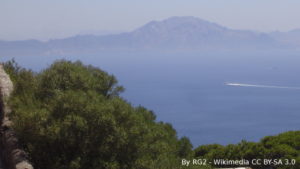 We are a long way from 2015. That year, the world committed to the Sustainable Development Goals and the Paris Agreement on climate – promising to end extreme poverty, address corrosive inequality, boost peace and prosperity, and stop climate change.
We are a long way from 2015. That year, the world committed to the Sustainable Development Goals and the Paris Agreement on climate – promising to end extreme poverty, address corrosive inequality, boost peace and prosperity, and stop climate change.
Now in 2018, we already look back at 2015 with nostalgia. This was the high water mark of multilateralism, brought low by the rise of populism and ‘illiberal democracy’. Suddenly, it seems, we are forced to find ways of rescuing the global rules-based order.



 Trade policy headlines are dominated today by the ups and downs of the United States-China relationship, the renegotiation of the North American Free Trade Agreement (NAFTA) and the Brexit process. There is concern on the effects that disintegrating closely linked economic partners could have on growth, jobs, supply chains, and consumers. The perils of a return to unilateralism and power-based mechanisms threaten the relevance of the World Trade Organization (WTO). Among the challenges confronting global trade governance, however, there is positive energy coming from several regions of the world in the form of renewed and pro-active leadership on preferential trade agreements (PTAs) on the part of the European Union (EU), Japan and Africa. This energy is welcome as it is a source of global cooperation, but more is needed to make sure it complements the multilateral trading system.
Trade policy headlines are dominated today by the ups and downs of the United States-China relationship, the renegotiation of the North American Free Trade Agreement (NAFTA) and the Brexit process. There is concern on the effects that disintegrating closely linked economic partners could have on growth, jobs, supply chains, and consumers. The perils of a return to unilateralism and power-based mechanisms threaten the relevance of the World Trade Organization (WTO). Among the challenges confronting global trade governance, however, there is positive energy coming from several regions of the world in the form of renewed and pro-active leadership on preferential trade agreements (PTAs) on the part of the European Union (EU), Japan and Africa. This energy is welcome as it is a source of global cooperation, but more is needed to make sure it complements the multilateral trading system.